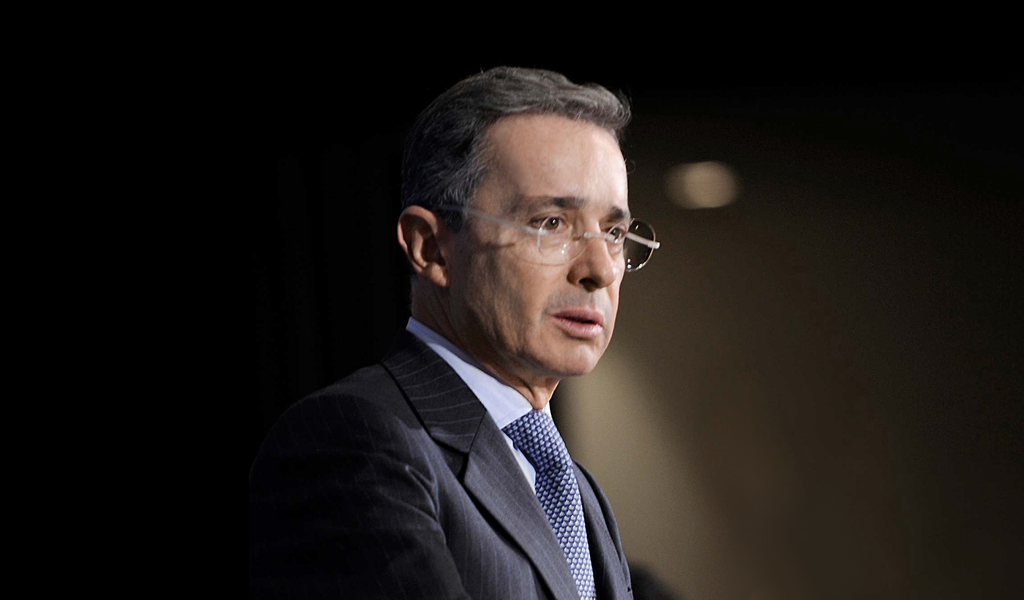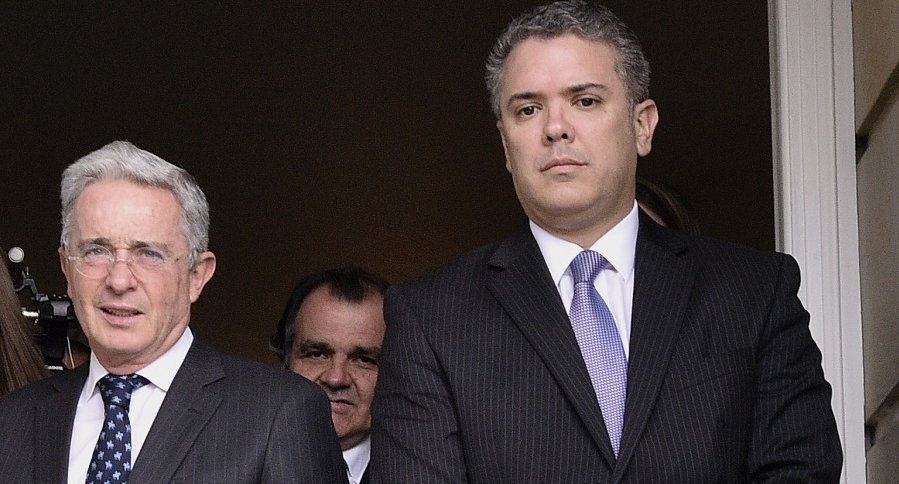A scope of the Peace Accord along with the policy implications are weighed in the New York Times Article published on May 17, 2019:
Colombia’s Peace Deal Promised a New Era. So Why Are These Rebels Rearming?

A scope of the Peace Accord along with the policy implications are weighed in the New York Times Article published on May 17, 2019:
Colombia’s Peace Deal Promised a New Era. So Why Are These Rebels Rearming?

On Wednesday, August 1, former Colombian president Álvaro Uribe again took to Twitter with a political announcement, this time reversing his decision to resign from the Colombian Senate.
Just last week Uribe announced via his Twitter page that he would be resigning from the Senate due to the ongoing investigation into allegations of procedural fraud and bribery.
Today he posted with a change of heart, asking Ernesto Macías, President of the Senate and fellow Democratic Center Party member, to “not take into consideration” his letter of resignation.
Uribe stated that it had not occurred to him that his resignation would mean that his case would be heard by a lower court, and his decision to remain in the Senate was spurred by a desire to have his case heard by the country’s highest judicial authorities.
Ever since Uribe announced his resignation last week, different coalitions in the Senate, including some of the opposition, expressed their desire for him to remain in the Senate.
The Democratic Center Party had been particularly strong about their desire for Uribe to remain, with continuous efforts throughout the week to urge Uribe to reconsider his resignation, especially since Uribe’s departure from the Senate would leave their coalition, the majority in the Senate and second largest in the House, without its leader just before the transfer of power to Ivan Duque’s new administration.
With Uribe remaining in the Senate, the new administration will retain its most powerful political ally, which should have a profound impact in aiding the passage of any legislation introduced by Duque and his administration in the coming weeks.

At 41 years old, Ivan Duque will become the youngest president in Colombian history. Educated as a lawyer and having spent the past decade working in Washington, DC at the Inter-American Development Bank, Duque is a relative newcomer to the political scene.
Duque first appeared in Colombian politics about 20 years ago, serving as an adviser to then-Finance Minister Juan Manual Santos. His political career continued in the United States as well, where he served as an adviser for three Andean countries as the then-Chief of the Cultural Division of the Inter-American Development Bank.
During his time at the IDB, Duque formed a close relationship with former Colombian President Álvaro Uribe and later returned to Colombia in 2014 when he was elected to the Colombian Senate with Uribe’s backing.
Many are concerned that Duque will act as a puppet for Uribe’s political plans, but Duque is firm in his statements that he will govern as himself, without influence from his mentor. Duque has presented his time spent in Washington as a necessary distance between him and the established Colombian political elite as evidence of his independence from their influence, but his plans so far seem consistent with those of Uribe, whether or not Uribe is directing him.
Other areas of concern surround the Peace Accord, notably Duque’s lack of recognition of state and paramilitary forces as perpetrators of violence. Additionally, Duque does not want to maintain the terms for talks with the ELN that former-president Santos had begun, leaving future talks a mystery.
Duque has stated that he will make the necessary “corrections” to the Peace Accord in order to emphasize provisions on victims’ rights and to push for greater security measures and punishments for guerrillas.
In order to spur some of the much needed economic growth in Colombia, Duque’s platform includes cuts to business taxes, support for oil and coal industries and to help manufacturing.
Duque is also sees the large influx of Venezuelan refugees spilling over the border into Colombia as a security rather than a humanitarian crisis, and will most likely dedicate a significant effort to addressing this issue.
For more reading: https://newrepublic.com/article/149185/colombia-keeps-electing-presidents-tied-murderers